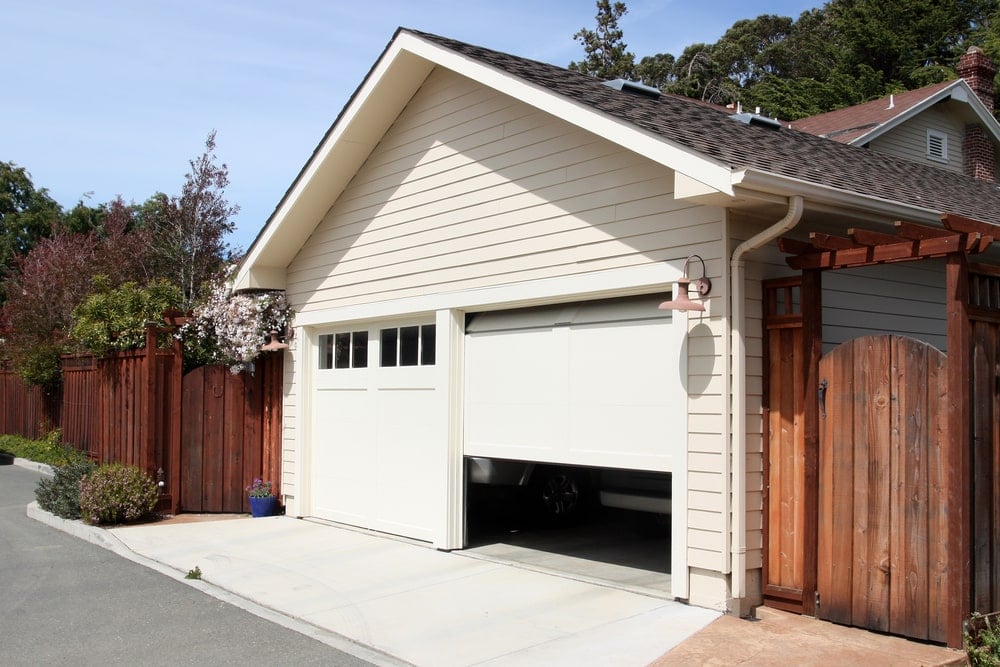
Homeowners often weigh a choice between insulated and non-insulated garage doors. A non-insulated garage door may suit a detached garage in a mild climate zone, in which case you can save a few hundred dollars. However, they often cost more later in terms of energy, comfort, and curb appeal. The benefits of insulated garage doors outweigh the cons, which are generally limited to higher costs.

If cost isn’t much of a concern, then consider these benefits of insulated garage doors:
Reduced Energy Costs
Insulation is often advertised to reduce energy costs. The actual results vary from home to home, but an insulated garage door can make your home cooler in summer and warmer in winter without increasing the demand on your HVAC system. This is especially true where there are more extreme temperature variations. If your garage is attached, the difference is even greater because cold air can seep right through the door, into the garage, and into adjacent rooms. And if you have insulated walls, installing an insulated door can reduce heat loss by 70%.
Warmer Garage Space
An insulated garage door can raise the interior temperature by 20°F or more relative to the outside temperature. This difference varies depending on the R-value of the material. If you live in a cold climate, it can bring indoor air above freezing, so you avoid dead car batteries and frozen pipes, or problems storing items such as oil, paint, or food. You can also use a warmer garage as a workspace, a family room, a playroom, or to enjoy hobbies.
Greater Durability
Uninsulated, single-layer doors are weaker and hold up poorly to impacts. Nowadays, insulated garage doors are often supported by a steel or aluminum frame, filled with a solid-core insulation sandwiched between panels. This lightweight design is more resistant to denting and other damage. Insulated, multi-layered doors are also resistant to weather-related factors, such as wind, hail, and projectiles, while sensitive internal mechanisms are protected against cold air and extreme temperature changes.
A Quieter Garage
Another advantage of insulation is it dampens noise—by as much as 16 decibels. It can help block noise from the movement of the door and its opener. The biggest difference is if you have an older door with loose chains, worn rollers, and poorly lubricated hinges. A newer door will vibrate less thanks to its tighter construction and heavier weight. In addition, the insulation will also block noise from outside, so you hear less traffic, people, and construction sounds from beyond your walls.
Curb Appeal
If a buyer knows the garage door is insulated, that’s reason enough to dig deep into other reasons to potentially buy a house. An insulated door also looks good. It can be customized in various styles and with different materials and colors. You can choose different types of panels and textures, while insulated windows can be added too.
Choice of Insulation
With insulated garage doors, you can choose from materials such as steel, wood, aluminum, or fiberglass. Insulation options include polystyrene, which is available in rigid panels that can be added after a door is installed. For greater strength and efficiency, polyurethane is more suitable. It is usually installed between door layers and adds structural integrity and durability.
So, here you have the benefits of insulated garage doors. If you’re considering replacing an older, non-insulated door, contact Precision Door Service of Fresno today. Our technicians can be reached at 559-212-3305 or online. Call now to learn more and receive a friendly quote.












